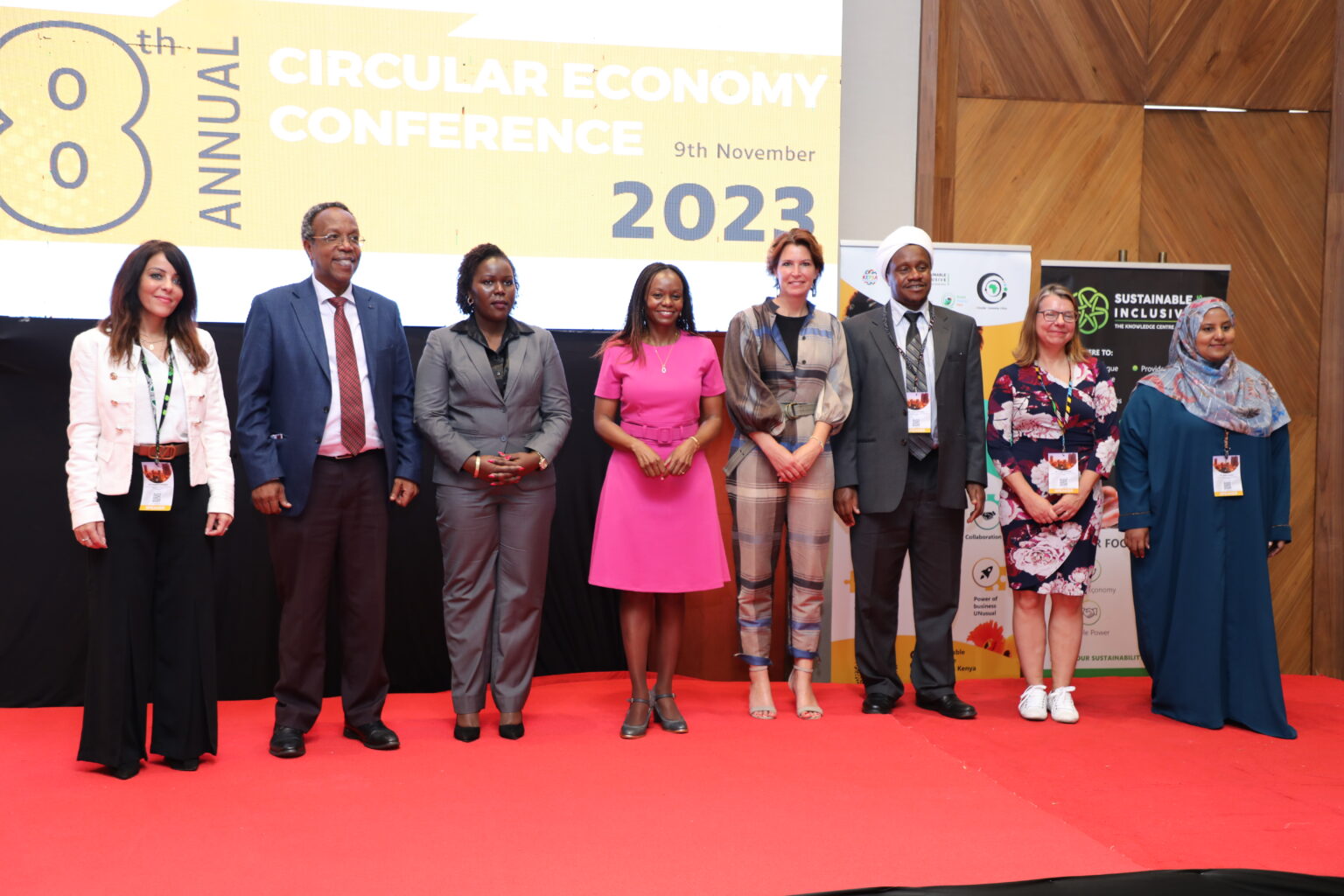- The Kenyan Government has announced plans to develop a circular economy strategy to guide the nation’s transition to circularity.
- With the circular economy, Kenya can drive the optimization of resources, reduce the consumption of raw materials, and recover waste by recycling or giving it a second life as a new product.
- However, Kenya is facing significant challenges in adopting circularity, including limited waste collection and recycling infrastructure.
The Kenyan Government has announced plans to develop a circular economy strategy to guide the nation’s transition to circularity. In a statement during the Annual Circular Economy Conference, the Cabinet Secretary for Environment, Climate Change, and Forestry, Soipan Tuya, said that with the circular economy, the country can drive the optimization of resources, reduce the consumption of raw materials, and recover waste by recycling or giving it a second life as a new product.
Strategy helps eliminate greenhouse gases
“Circular Economy is a key priority for the ministry not just because of its centrality in the fight against climate change by eliminating greenhouse gas emissions through waste management, but also because of its immense potential to transform the social and economic well-being of communities through income-generating activities,” said Tuya in a statement read by Linda Kosgei, Head of Multilateral Environmental Agreements (MEAs) in the Ministry of Environment, Climate Change, and Forestry.
Kenya is still facing significant challenges in adopting circularity. These include limited waste collection and recycling infrastructure, inadequate funding, and a lack of awareness and education on the benefits of circularity at a household level.
Kenya generates over 22,000 tonnes of plastic waste every month, with only 9 percent of this waste being recycled. Quite often, this waste ends up in landfills, waterways, and the ocean, leading to environmental pollution and health hazards. Moreover, food waste is also a significant problem in Kenya, with over 10 million tonnes going to waste yearly, contributing to environmental pollution and food insecurity.
“A sustainable, circular economy is not just a vision; it’s necessary for our survival and the well-being of the planet and future generations. As the private sector, we have the opportunity and the obligation to lead this transformative journey,” Kenya Private Sector Alliance (KEPSA) Chief Executive Officer, Ms. Carole Kariuki, said.
Read also: Adopting circular economy can yield cost savings, revenue growth for EA firms — Survey
Companies need to prepare for the circular economy
She said companies need to get ready for a circular economy approach and look at all aspects of their business and value chain following the circular Rethink, Redesign, Reduce, Reuse, Repair, Refurbish, Remanufacture, and Recycle thinking approach.
“The circular economy is growing in Kenya; however, more needs to be done to ensure policy priorities are budgeted and appropriated for the economy to fully go circular,” she added.
Kenya is one of the leading circular economy hotspots in East and Central Africa. There are efforts from different fronts to close loops and create different business models. Since 2017, Kenya has been gradually phasing out plastics in all its forms through legislation. This includes the ban on plastic carrier bags, the ban on specific Single-Use Plastic items (SUP) in all protected areas since June 5th, 2020, and the EPR legislations.
These bans have fast-tracked the development of policy regimes that support circularity both within and outside the private sector. The ban has been widely accepted as timely and proper in line with the National Sustainable Waste Management Bill of 2019.
The conference convened over 300 participants, including leaders, experts, and stakeholders across various sectors, to explore opportunities and strategies for catalyzing the transition towards a circularity.
The forum also provided a platform for in-depth discussions, keynote speeches, panel dialogues, enlightening masterclasses, and a circular innovation expo that yielded insights, connections, and concrete solutions for advancing sustainability.
Read also: The Global South to take lead in plastic manufacturing
How the strategy can reshape the economy
The adoption of the circular economy concept is poised to have significant macroeconomic effects in the medium term. Its gradual implementation is expected to bring about structural changes, influencing investment, employment, and sectoral growth. This shift in focus towards end-of-life resource management, design-for-durability, and increased reliance on services will likely reshape the economy.
The circular economy is anticipated to bring production and consumption sites closer together, as managing material loops becomes more feasible on a national and regional scale. Particularly in industrial areas, where inputs are primarily imported, a circular economy can contribute to reducing input-based imports, fostering greater regionalization of supply chains.
Policies supporting a circular economy have the potential to alter relative prices between imported and recycled inputs, thereby encouraging the development of new industrial segments until economies of scale are realized. Given the strategic importance of a circularity for sustainability, these efforts should prove economically profitable in the long run.
Similar to how many countries initially support specific production segments like agriculture or energy until they become competitive, the same principle should apply to the initiative. Within a framework of providing incentives such as taxes, investment promotion policies, financing, and technical assistance, these emerging areas should attract fresh capital and contribute to expanded growth.
